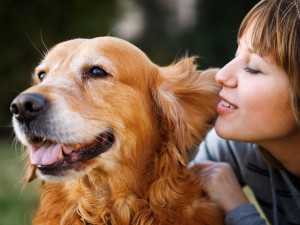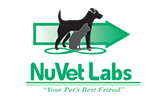How to Help Your Dog Stop Barking
How to Help Your Dog Stop Barking
There are several techniques and products that help you deal with your dog when they display unwanted behaviors, such as barking incessantly. However, there are several things you should be aware of before you attempt to address the problem.

Why Is My Dog Barking?
First, you need to understand why your dog is barking. While people talk and use body language to communicate, dogs communicate through barking and wagging their tails. Many times, your dog is trying to tell you something by barking. The message can range from “Hey, welcome home, I missed you!” to “I’m hungry, where’s dinner?” Your dog may also be trying to tell you that he’d like to go outside, or there is a stranger approaching your home. Some dogs, like Huskies and similar breeds, love to talk to everyone, and they do this by barking. If your dog barks when left outside alone, this is usually because dogs are pack animals and want to be with you. Sometimes, dogs bark for what seems to be no reason, but this is rare.
How Can I Stop the Barking?
After you have determined why your dog is barking, you can now address the behavior. If your dog needs something legitimate, like dinner or a potty break, help him out with his needs. If he’s barking just to hear himself bark, address this issue and teach him that his behavior is unacceptable. While punishing your dog may work as a short-term solution, it’s not at all advisable. Try redirection first. When your dog starts barking, redirect with a toy or a session with the grooming brush. Taking your dog’s mind to good behaviors will show him that you don’t like when he randomly barks. You may also choose to ignore your dog’s barking; many times a dog will hush up if they realize no one is paying attention to them.
You should also remove your dog’s reason for barking, if possible. You can’t make people stop walking their dogs past your house. However, you can invest in drapes or blinds that block your dog from seeing them. You can also desensitize your dog to the source of his barking. For example, if he likes to bark at other dogs, try doggie daycare so he gets plenty of socialization. And finally, a tired dog is a happy dog. Make sure your dog gets plenty of exercise each day. He’ll be too tired and too happy to bother with raising a ruckus at the sound of the doorbell or a strange person walking by your home.
Don’t get frustrated with your dog. He can tell when you are upset and this will derail your attempts to train him. Remember, when you yell at your dog, he thinks you are “barking” back at him, and will continue his behavior. Training a dog can take time, as they don’t communicate the same way people do. Be patient and enlist the help of a professional if you don’t feel like you and your dog are on the same sheet of music when it comes to acceptable behaviors.
Visit NuVet’s Twitter page or Facebook page to learn more about canine behavior!



